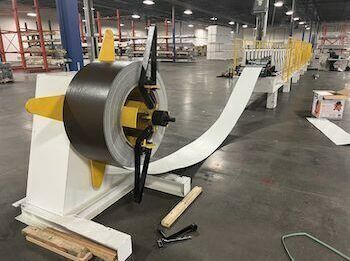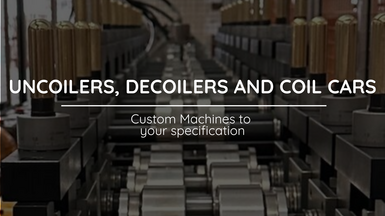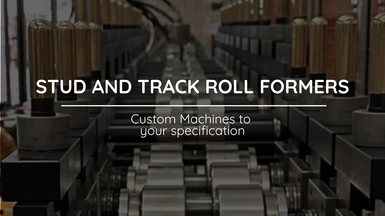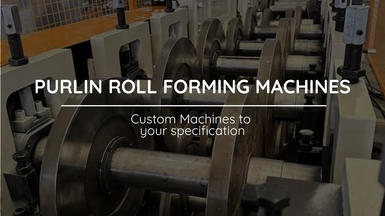
Roll-forming Machine Coil Gauges
Understanding the coil is one of the first steps you need to get to grips with when operating a roll-forming machine.
Posted on Tuesday, February 28, 2023
If you don’t know what you require, chances are you won’t purchase the suitable coil to create your needed products.
The width and thickness of the coil are two crucial factors that will determine what you can produce using the roll-forming machine. The quality of the product, as well as the machine’s performance, will both be influenced by these factors.
Coil Width
There are different coil widths for various gauges, and the standard width for 29 ga. coil being 40.875”. Rarely will people order the material in a slightly wider 41” width. This typically makes the underlap and overlap on their metal panel marginally wider.
Choose a wider material with care as it won’t fit through all machines. Checking the width tolerance before you purchase is imperative. Each roll-forming device is different, while some machines will accept 26 ga. thickness, others won’t, so it is essential to check your machine guide first.
Buying coil from a reputable supplier is also imperative. This way, you can rest assured that the coil width will remain consistent throughout. Even so, there still can be minimal variation, and if this is the case, you may have to adjust accordingly to ensure the overlap remains long enough for the panel to lap correctly.
Coil Thickness
When it comes to the thickness of the coil, the yield is the most important thing to pay attention to - that being the weight per linear foot.
The typical thicknesses you’ll find in the industry range from .0138” to .0185”. Those falling in the .0138 to .0153 range will all be 29 ga. product. You can buy by the foot or the pound, and knowing what you want the material to weigh per foot is vital to ensure the correct thickness is achieved.
It can be helpful to think of the gauge as a guide rather than a completely accurate measure. Being aware of the yield you have in mind and mentioning this to the supplier can ensure you get the actual material you want, and the more specific you are about the yield, i.e., what the material weights per foot, will help to achieve this.
Gauge terminology
When purchasing material for your roll former, you may come across the terms ‘minimal’ and ‘nominal’ thickness.
“Minimal thickness” will be above or equal to the stated target thickness. “Nominal thickness” can be above, below, or equal to the indicated target thickness. Because nominal thickness could be thicker or thinner, typically minimal thickness is used more as it provides a more accurate measurement and, therefore a more consistent product.
Record keeping
By keeping records, you can help to minimize repeat occurrences of problems with your output. If you receive any complaints from dissatisfied customers, the first step is to discover the coil tag or coil number it came from. Knowing this will help to process a claim and help the supplier to keep accurate quality control reports.
If you are looking for a high-quality roll forming machine, browse the range from Rollforming LLC or get in touch with our customer team today.
Roll Forming Machines LLC's New Factory
Posted on Sunday, March 23, 2025
We have relocated factories, which will be available for tours very soon.

Uncoiler, Decoiler and Coil Car Roll Forming Machine Accesories from Roll Forming Machines LLC
Posted on Sunday, November 24, 2024
Contact us today with your specifications for a custom Uncoiler, Decoiler or Coil Car at sales@rollformerusa.com or call us at (+1) (407) 859 1119

Stud and Track Roll Forming Machines from Roll Forming Machines LLC
Posted on Saturday, November 23, 2024
Contact us today with your specifications for a custom Stud and Track Machine at sales@rollformerusa.com or call us at (+1) (407) 859 1119

Cee and Zee Purlin Roll Forming Machines from Roll Forming Machines LLC
Posted on Saturday, November 23, 2024
Contact us today with your specifications for a custom Cee and Zee Purlin Machine at sales@rollformerusa.com or call us at (+1) (407) 859 1119